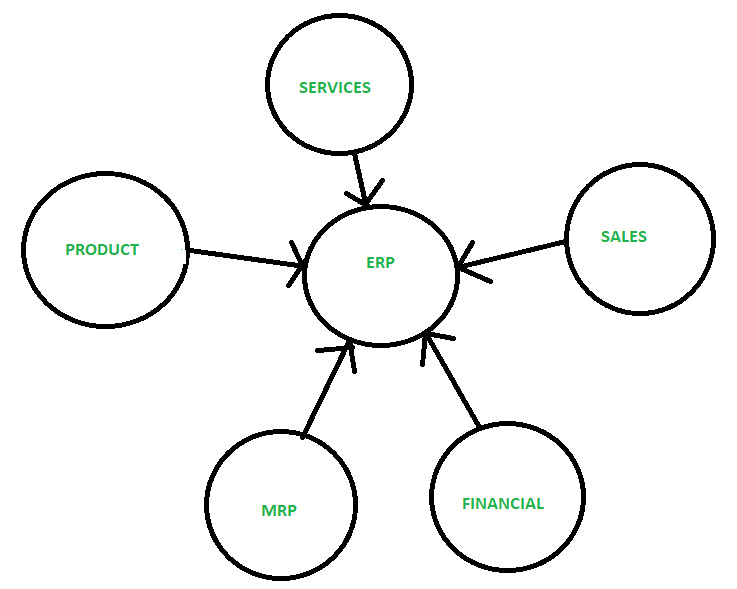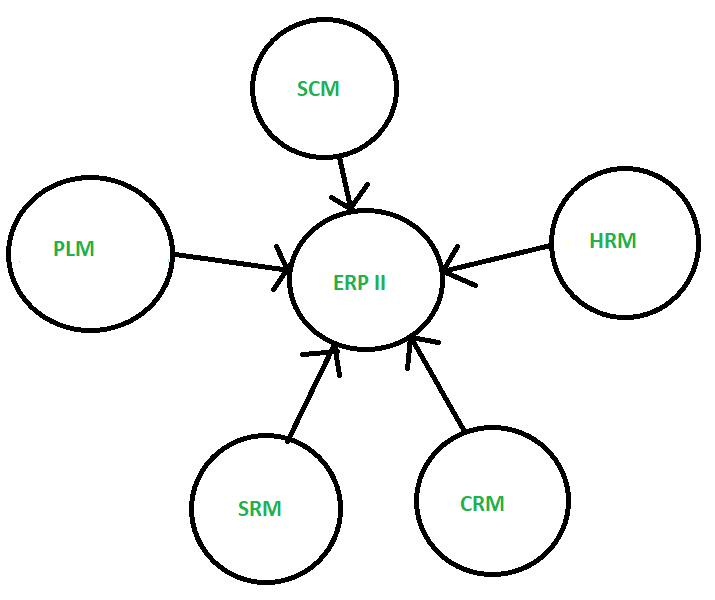1.企业资源计划(ERP):
企业资源计划是国内和全球运营的基础系统,在日常运营中为大多数或所有职能领域提供支持。是商业软件,尤其是大型企业中较常见的类别之一。
它是一种业务策略和一组特定于行业领域的应用程序,它们通过启用和优化企业以及企业间协作运营和财务流程来构建客户和股东社区,从而珍惜网络系统。 ERP的核心是通过数据管理集中信息和工作流程的有效方法。因为ERP将所有工作流程数据都保存在一个地方。

ERP II是现在用来描述ERP的名称。基本上,它是ERP的后继者。它是一项业务战略,是企业内部以及企业外部的一组协作运营和财务流程。
这些新的业务模型反映出业务越来越关注内部集成。它的领域涵盖所有领域和细分市场。其中的数据在内部和外部进行发布和订阅。它包括部门模块,CRM,SCM和其他利益相关者模块。它强调无形资产。

ERP和ERP II之间的区别:
| ERP | ERP II |
|---|---|
| It is developed in 1990s. | It is developed in 2000s. |
| ERP was concerned with optimizing an enterprise-Internal Optimization. | These systems are about optimizing the supply chain through collaboration with trading partners. |
| Focuses on manufacturing and distribution. | Focuses on all sectors and segments of business. |
| It’s process is internal and hidden. | It’s process is externally connected. |
| Data is internally generated and consumed. | Data is internally and externally published and subscribed. |
| It is web-aware, closed and monolithic. | It is web-based, open and componentized. |